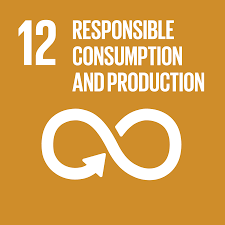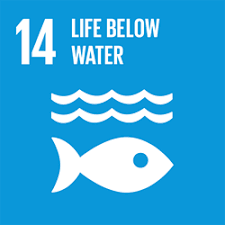Lockdown Has Only Had Positive Effects on the Planet. Or Has It?
- Yamini

- Jun 23, 2020
- 3 min read
This article is focused on the following Sustainable Development Goals:

Since COVID-19 came about in our world, over 2.6 billion people have been under some form of a lockdown, which is almost one-third of the global population. Therefore, this has clearly impacted our planet; factories, shops, restaurants and several other facilities have shut down and transportation has decreased. Although, there have been various reports and articles about how this has had a positive impact on our environment. The water in Venice is the clearest it has been since 1960 and air quality in countries around the world has significantly improved. While we divert a lot of our attention to these impacts, what about the negative ones? No one has been talking about how the consumption of plastic has gone up exponentially?
Bangkok, alone, used 62% extra plastic in April over the last 12 months, Bangladesh is estimated to have produced almost sixteen thousand tons of hazardous plastic in just the first month of lockdown. During Singapore's eight-week lockdown they generated an extra 1,270 tons of plastic from takeout packaging and food delivery alone. Keeping in mind that the fact that social distancing will not go away for at least a few more months, this is an issue that needs to be addressed and given more recognition. There are two main reasons as to why plastic consumption has suddenly increased during this pandemic. One of them being that plastic is still the most affordable solution for personal protection in global healthcare systems. The second reason, which has already been stated, is that the demand for takeout food has increased.
Even though medical experts have mentioned that reusable items do not pose any additional risk to spreading the virus if cleaned properly, many retailers and industries argue that “plastics are essential in the effort to stop the spread of this virus”. This mindset is the reason why we are a threat to our own environment. It takes just a little bit of effort to try and achieve sustainability and yet, barely anyone is ready to take action. Starbucks can be used as an example as they have stopped allowing customers to bring their own reusable cups or containers. “I understand people are afraid because they don’t know what’s going on with this virus, but it’s just a major setback for environmental protection”, said Stokes, co-founder of Oceans Asia. “It’s almost just an excuse for going back and using plastic on everything.”
In California, Governor Gavin Newson temporarily lifted the ban on single-use grocery bags which led to a sharp increase in demand for plastic bags. Before the pandemic, only 10% of plastic was actually being recycled (that was back when recycling could actually take place). Now that the pandemic has shut down almost everything, can you imagine what that 10% has come down to? So not only has our usage of plastic increased, but the amount being recycled has decreased, as well. And yet, no one is talking about it. This plastic injures and kills fish, marine animals, seabirds and so many other species. Thus, this concern falls under UN Sustainable Development Goal 14: Life Below Water. Plastic endangers the existence of life underwater from small fishes to large mammals and amphibians in numerous ways. Reports state that approximately one million seabirds and 100,000 marine mammals are killed annually because of plastic ingestion. Unfortunately, many marine species are on the brink of extinction due to this type of ocean pollution.
So, what can you do in this situation? You can make a conscious effort to order less takeout food in order to ensure that the plastic used for packaging does not end up going into landfills or oceans. Additionally, you could also encourage your parents and people around you to switch to metal or glass bottles and containers. They are more expensive but they also last longer. Moreover, metal containers do not emit chemicals when exposed to sun/heat. Therefore not only is it better for the environment, but for your health too. Lastly, you can educate yourself and those around you. Ignorance leads to irresponsible consumption and production of plastic which falls under the UN Sustainable Development Goal 12: Responsible Consumption and Production. The more you are aware of the consequences of your actions, the more responsible you will become.
Remember, change starts with you.
Works Cited
1. “The COVID-19 Pandemic Is Unleashing a Tidal Wave of Plastic Waste.” Los Angeles Times, Los Angeles Times, 13 June 2020, www.latimes.com/world-nation/story/2020-06-13/coronavirus-pandemic-plastic-waste-recycling.
2. Monella, Lillo Montalto. “Will Plastic Pollution Get Worse after the COVID-19 Pandemic?” Euronews, 13 May 2020, www.euronews.com/2020/05/12/will-plastic-pollution-get-worse-after-the-covid-19-pandemic.
3. Dmitry Konov, Chairman of the Management Board. “COVID-19 Is Forcing Us to Rethink Our Plastics Problem.” World Economic Forum, www.weforum.org/agenda/2020/05/covid-19-is-forcing-us-to-rethink-our-plastic-problem/.





Comments